
AOL is an American web portal and online service provider based in New York City, and a brand marketed by Yahoo! Inc.
Consumer Reports (CR), formerly Consumers Union (CU), is an American nonprofit consumer organization dedicated to independent product testing, investigative journalism, consumer-oriented research, public education, and consumer advocacy.
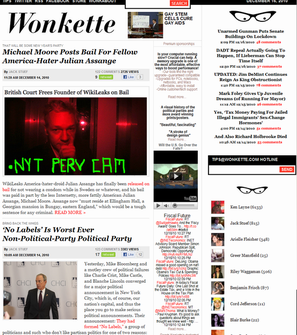
Wonkette is an American online magazine of topical and political gossip, established in 2004 by Gawker Media and founding editor Ana Marie Cox. The editor since 2012 is Rebecca Schoenkopf, formerly of OC Weekly. Wonkette covers U.S. politics in a satirical manner.
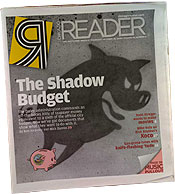
The Chicago Reader, or Reader, is an American alternative newspaper in Chicago, Illinois, noted for its literary style of journalism and coverage of the arts, particularly film and theater. The Reader has been recognized as a pioneer among alternative weeklies for both its creative nonfiction and its commercial scheme. Richard Karpel, then-executive director of the Association of Alternative Newsweeklies, wrote:
[T]he most significant historical event in the creation of the modern alt-weekly occurred in Chicago in 1971, when the Chicago Reader pioneered the practice of free circulation, a cornerstone of today's alternative papers. The Reader also developed a new kind of journalism, ignoring the news and focusing on everyday life and ordinary people.
Gawker was an American blog founded by Nick Denton and Elizabeth Spiers that was based in New York City and focused on celebrities and the media industry. According to SimilarWeb, the site had over 23 million visits per month in 2015. Founded in 2002, Gawker was the flagship blog for Denton's Gawker Media. Gawker Media also managed other blogs such as Jezebel, io9, Deadspin and Kotaku.

Gawker Media LLC was an American internet media company and blog network. It was founded by Nick Denton in October 2003 as Blogwire, and was based in New York City. Incorporated in the Cayman Islands, as of 2012, Gawker Media was the parent company for seven different weblogs and many subsites under them: Gawker.com, Deadspin, Lifehacker, Gizmodo, Kotaku, Jalopnik, and Jezebel. All Gawker articles are licensed on a Creative Commons attribution-noncommercial license. In 2004, the company renamed from Blogwire, Inc. to Gawker Media, Inc., and to Gawker Media LLC shortly after.

Nicholas Guido Anthony Denton is a British Internet entrepreneur, journalist, and blogger. He is the founder and former proprietor of the blog collective Gawker Media, and he was the managing editor of the New York City–based Gawker until a lawsuit by Terry Bollea bankrupted the company.

Joystiq was a video gaming blog founded in June 2004 as part of the Weblogs, Inc. family of weblogs, now owned by AOL. It was AOL's primary video game blog, with sister blogs dealing with MMORPG gaming in general and the popular MMORPG World of Warcraft in particular.
Weblogs, Inc. was a blog network that published content on a variety of subjects, including tech news, video games, automobiles, and pop culture. At one point, the network had as many as 90 blogs, although the vast majority of its traffic could be attributed to a smaller number of breakout titles, as was typical of most large-scale successful blog networks of the mid-2000s. Popular blogs included Engadget, Autoblog, TUAW, Joystiq, Luxist, Slashfood, Cinematical, TV Squad, Download Squad, Blogging Baby, Gadling, AdJab, and Blogging Stocks.
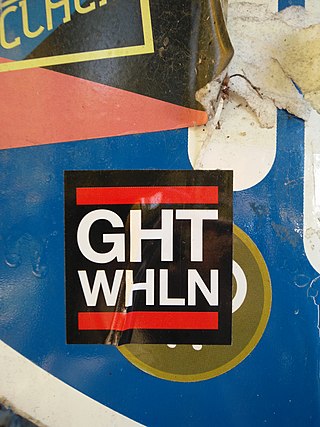
Disemvoweling, disemvowelling, or disemvowelment is writing a piece of text with all the vowel letters removed. Disemvoweling is often used in band and company names. It used to be a common feature of SMS language where space was costly.
Deadspin is a sports blog founded by Will Leitch in 2005 and based in Chicago. Previously owned by Gawker Media, Univision Communications and G/O Media, it was sold to Lineup Publishing in March 2024.
In 2006, the Internet company AOL released a large excerpt from its web search query logs to the public. AOL did not identify users in the report, but personally identifiable information was present in many of the queries. This allowed some users to be identified by their search queries. Although AOL took down the file within a few days, it had already been widely copied and still remains available.

Facebook is a social media and social networking service owned by American technology conglomerate Meta. Created in 2004 by Mark Zuckerberg with four other Harvard College students and roommates Eduardo Saverin, Andrew McCollum, Dustin Moskovitz, and Chris Hughes, its name derives from the face book directories often given to American university students. Membership was initially limited to Harvard students, gradually expanding to other North American universities. Since 2006, Facebook allows everyone to register from 13 years old, except in the case of a handful of nations, where the age limit is 14 years. As of December 2022, Facebook claimed almost 3 billion monthly active users. As of October 2023, Facebook ranked as the third-most-visited website in the world, with 22.56% of its traffic coming from the United States. It was the most downloaded mobile app of the 2010s.
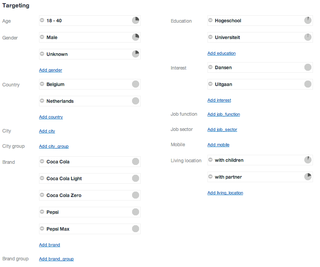
Targeted advertising is a form of advertising, including online advertising, that is directed towards an audience with certain traits, based on the product or person the advertiser is promoting.
Jezebel is a US-based website featuring news and cultural commentary geared towards women. It was launched in 2007 by Gawker Media under the editorship of Anna Holmes as a feminist counterpoint to traditional women's magazines.
BuzzFeed, Inc. is an American Internet media, news and entertainment company with a focus on digital media. Based in New York City, BuzzFeed was founded in 2006 by Jonah Peretti and John S. Johnson III to focus on tracking viral content. Kenneth Lerer, co-founder and chairman of The Huffington Post, started as a co-founder and investor in BuzzFeed and is now the executive chairman.

Instagram is a photo and video sharing social networking service owned by Meta Platforms. It allows users to upload media that can be edited with filters, be organized by hashtags, and be associated with a location via geographical tagging. Posts can be shared publicly or with preapproved followers. Users can browse other users' content by tags and locations, view trending content, like photos, and follow other users to add their content to a personal feed. A Meta-operated image-centric social media platform, it is available on iOS, Android, Windows 10, and the web. Users can take photos and edit them using built-in filters and other tools, then share them on other social media platforms like Facebook. It supports 32 languages including English, Hindi, Spanish, French, Korean, and Japanese.
Social spam is unwanted spam content appearing on social networking services, social bookmarking sites, and any website with user-generated content. It can be manifested in many ways, including bulk messages, profanity, insults, hate speech, malicious links, fraudulent reviews, fake friends, and personally identifiable information.
Native advertising, also called sponsored content, partner content, and branded journalism, is a type of paid advertising that appears in the style and format of the content near the advertisement's placement. It manifests as a post, image, video, article or editorial piece of content. In some cases, it functions like an advertorial. The word native refers to the coherence of the content with the other media that appear on the platform.
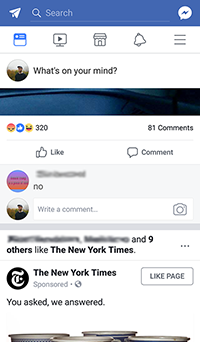
Facebook's Feed, formerly known as the News Feed, is a web feed feature for the social network. The feed is the primary system through which users are exposed to content posted on the network. Feed highlights information that includes profile changes, upcoming events, and birthdays, among other updates. Using a proprietary method, Facebook selects a handful of updates to show users every time they visit their feed, out of an average of 2,000 updates they can potentially receive. Over two billion people use Facebook every month, making the network's Feed the most viewed and most influential aspect of the news industry. The feature, introduced in 2006, was renamed "Feed" in 2022.











